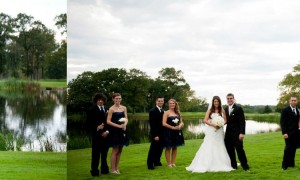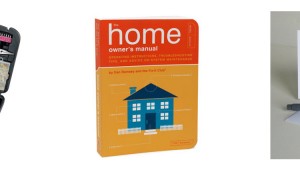Guest post by Laura Love Bardell
You’ve gotten engaged and are starting to plan a wedding—congratulations! If you and your partner already own a home together, the expense of a wedding can be a stretch on the household budget. The good news is that wedding gifts can help defray these costs. Curating a carefully-planned registry can provide a financial boost to homeowners building their lives together. Here are some of our top tips for creating a financially-savvy wedding registry.

Take Stock of Your Guest List
While you don’t need to have an exact headcount when you create your registry, it’s a good idea to have a basic sense of how many people you’ll be inviting to your event. Try to register for approximately 25% more items than guests so people will feel like they have a choice. So, for every 100 guests, select about 125 items. Hosting an intimate wedding with fewer than 20 guests requires a very different registry than a large affair with 200 or more attendees. Keep the number of items on your registry properly scaled to the number of people purchasing gifts, and you’re more likely to get the variety of items you need.
Prioritize According to Need
Couples who already own a home together likely have a lot of the necessities of furnishing a home. Take stock of the gaps and consider what you and your future spouse will really need and use after the big day. Prioritize those items, then fill out your list with some “nice-to-haves” at a range of price points.
For the biggest financial boost, consider high-quality pieces that will last decades. This could mean choosing dinnerware and serving pieces you’ll use every day, instead of kitchen towels and spatulas that are more likely to wear out after a year or two. You also don’t necessarily need to register for a complete set of formal bone china if you have no plans to host regular dinner parties.
Add Something Special
Think carefully about the activities you both enjoy. A registry could be the chance to get that special item that would be a big splurge if you bought it yourself. Are you both wine aficionados or coffee buffs? Consider registering for that wine cellar or automatic espresso machine you’ve been eyeing. Love movie nights? A popcorn maker and matching ceramic bowls could be perfect additions to your list. Finally, with group gifting becoming more and more popular, you can feel free to add bigger ticket items to your registry, including stand mixers, specialty cookware and even furniture.
Consider Gift Cards
Another approach to get the best financial benefit from your wedding registry? Think gift cards! This is a great way for guests to contribute to a group gift that you can use in your new life together without giving cash. If you and your future spouse have your heart set on a bigger bed, a new sectional sofa or an updated media stand, look into adding retailer-specific gift cards to your registry. Include a message on how you plan to use any gift cards to give guests a more tangible sense of how their gift will be enjoyed.
Remember to Have Fun
Overall, remember to have fun as you and your future spouse choose the items you’d like to share during your lives together. Prioritize practical items that fit with your daily activities and hobbies, and be sure to add a few “nice-to-haves” as well. Look for high-quality pieces that are likely to stand the test of time, and don’t be afraid to ask for larger gifts to accommodate group gifting.
Laura Love Bardell writes for Crate and Barrel, where she creates design-savvy content on the latest home-furnishing trends. Laura was a homeowner while she planned her own wedding, and she enjoys providing inspirational and practical guidance for couples who are creating a registry.







Interesting article. I’m a Realtor and I work for Coldwellbanker Prime Properties in Syracuse, NY. I see so many college students come out with so much debit that they can’t get a mortgage. In addition to gifts on the rental registry maybe the bride and grown should request a gift of cash to be put towards a housing savings account. Just a thought for those that want to be a homeowner but don’t have a down payment.